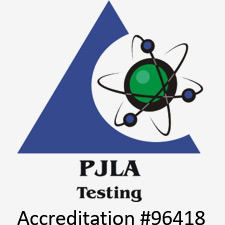For decades, asbestos was everywhere, woven into homes, workplaces, and industrial sites, before its deadly effects became undeniable. Now, another industrial marvel, per- and polyfluoroalkyl substances (PFAS), is under fire. PFAS products, found in everything from nonstick cookware to medical devices, don’t break down easily, accumulating in the environment and human bodies. The result? A growing body of research linking them to cancer, immune system damage, and hormone disruption.
With mounting evidence and rising legal battles, PFAS products are becoming one of the biggest environmental and public health challenges of our time.
PFAS: A Chemical Legacy We Can’t Shake
Dubbed “forever chemicals,” PFAS products have been in circulation since the 1940s, prized for their resistance to heat, water, grease, and stains. Their desirable properties and versatility made them indispensable in consumer and industrial products. But their durability also means they can take up to (and in some cases over) 1000 years to degrade. They then build up in soil, water, and living organisms—including us.
PFAS products are everywhere. They line fast-food wrappers, waterproof raincoats, and help medical devices function smoothly. Even fire fighting foams used at airports and military bases are saturated with them. But the same properties that make PFAS products so useful make them nearly impossible to remove from the environment. Trace-level PFAS have made their way into drinking water across thousands of communities, therefore exposure is no longer just limited to product use. It’s now a widespread public health concern.
A Disturbing Parallel: Asbestos vs. PFAS
The asbestos crisis followed a familiar trajectory: mass use, accompanied by mounting scientific evidence of harm, then lawsuits and sweeping bans. The PFAS timeline looks eerily similar.
Early Warnings Ignored
Both asbestos and PFAS gained industrial popularity long before their full health risks were publicly recognized. In both cases, companies had early evidence of harm. By the 1930s, medical researchers were linking asbestos exposure to respiratory diseases such as asbestosis and lung cancer, yet usage persisted for decades. Similarly, internal studies from 3M in the 1950s revealed that PFAS compounds could accumulate in the human body and potentially cause liver damage. These findings were not shared with regulators, and production continued despite the mounting concerns. The delay in addressing such risks allowed both substances to become deeply embedded in manufacturing and consumer products.
Silent Accumulation, Long-Term Damage
Asbestos fibers, once inhaled, remain in the lungs indefinitely, leading to devastating diseases like mesothelioma. PFAS don’t behave exactly the same way, but they, too, are persistent. They accumulate in bloodstreams, passing from mother to child, with half-lives measured in years. Low doses over time can disrupt hormones, damage the liver, and weaken immune responses.
Legal Battles and Corporate Accountability
Asbestos litigation has resulted in billions in settlements, bankruptcies, and public health interventions. PFAS lawsuits are following suit. 3M and DuPont, two of the biggest PFAS manufacturers, have already paid billions in contamination claims, and legal pressure is mounting. The sheer scope of PFAS contamination suggests this could become one of the largest environmental liability cases in history.
PFAS in Medical Devices: A New Frontier for Concern
PFAS products aren’t just in cookware and clothing—they’re embedded in healthcare. Their chemical resistance and durability make them valuable in medical tubing, implants, catheters, and surgical tools. They keep devices from sticking, degrading, or reacting with bodily fluids. But as regulators tighten restrictions, the medical industry faces a dilemma: how to maintain safety and performance while moving away from PFAS products.
Long-term exposure to PFAS products in medical settings isn’t yet well understood, but concerns are growing. If alternatives don’t emerge fast enough, the industry may face the same scramble for replacements that food and textile manufacturers are already navigating.
The Push for Regulation and Safer Alternatives
Governments worldwide are playing catch-up. The U.S. Environmental Protection Agency (EPA) is enforcing stricter drinking water limits, and states like California and Maine have banned PFAS products in food packaging. Moreover, the European Union is considering a near-total ban on nonessential PFAS use.
In response, manufacturers are actively searching for alternatives. Big brands, from McDonald’s to Patagonia, are working to eliminate PFAS products from packaging and apparel. Cookware companies are shifting to ceramic and stainless-steel coatings. Medical device manufacturers are also under increasing pressure to find viable replacements.
But exchanging PFAS products is no small task. Their chemical stability, while problematic from an environmental standpoint, also makes them difficult to substitute. The transition will take time. Until then, PFAS products will continue to circulate through supply chains, water systems, and human bodies.
How Jordi Labs Helps Manufacturers Navigate PFAS Challenges
For companies looking to eliminate PFAS, Jordi Labs’ Consumer Products Toxicology Services offer critical testing and compliance solutions. Our analytical experts help manufacturers:
- Detect PFAS contamination in existing products
- Ensure regulatory compliance with evolving global safety standards
- Identify sources of PFAS exposure in materials and supply chains
- Facilitate product reformulation for safer, PFAS-free alternatives.
By addressing PFAS risks, companies can protect consumers, avoid legal fallout, and stay ahead of regulation.
The Verdict: Is PFAS the Next Asbestos?
PFAS may not cause the same immediate lung damage as asbestos, but their long-term consequences could be just as severe. The slow recognition of harm, the global contamination, and the mounting lawsuits are all signs of a crisis in the making. Industries taking action now will be better positioned to avoid the worst fallout.
Businesses aiming to move away from PFAS products can turn to Jordi Labs’ expertise to navigate the transition to safer, compliant, and PFAS-free solutions. Contact our team today to learn how our advanced toxicology services can help.





